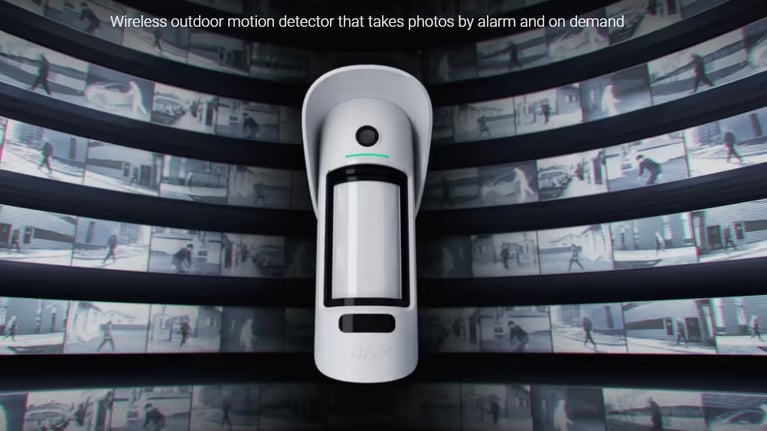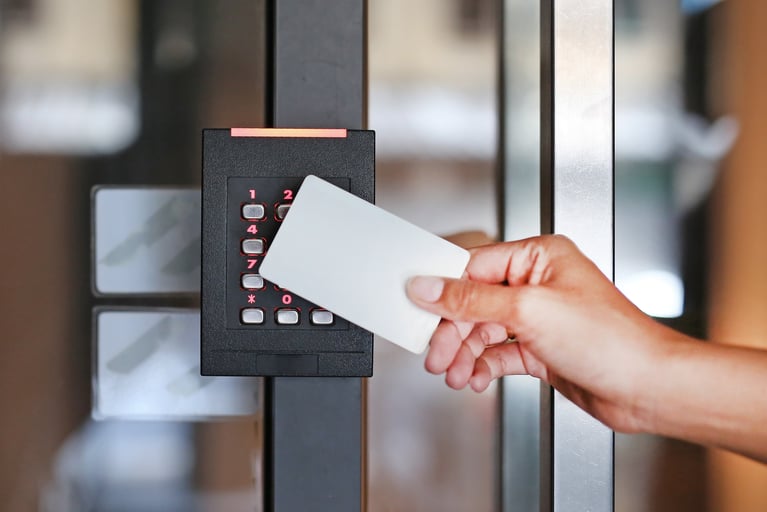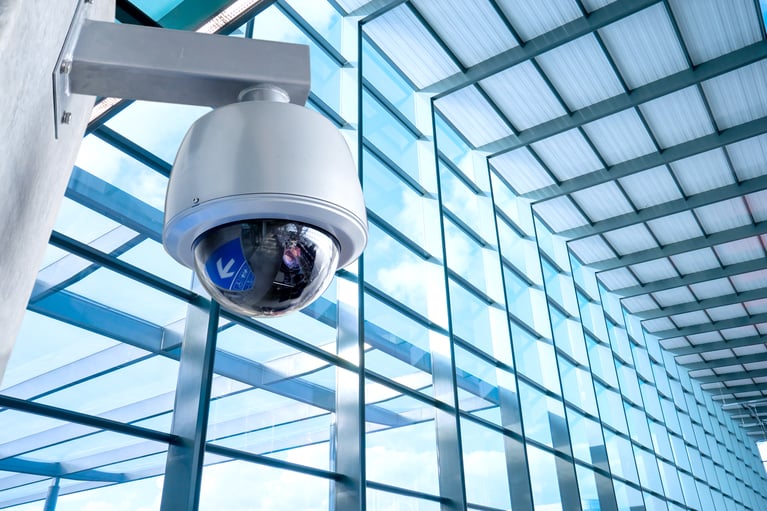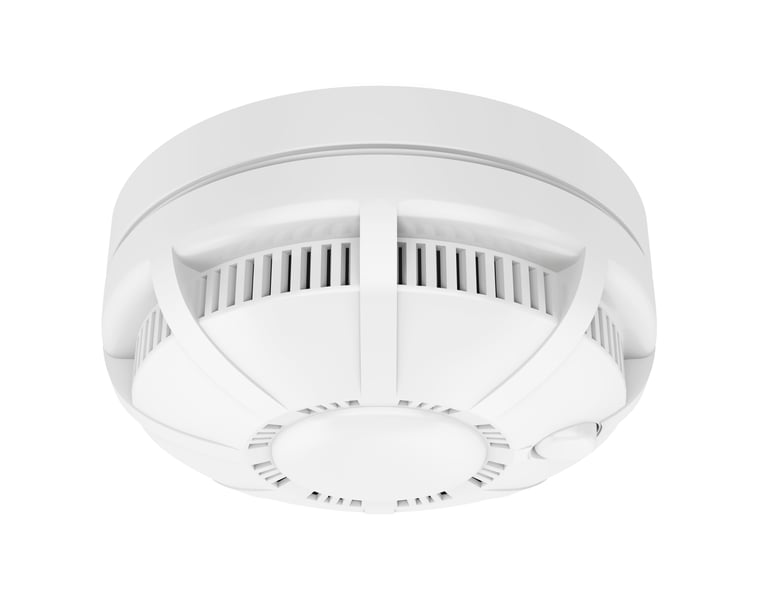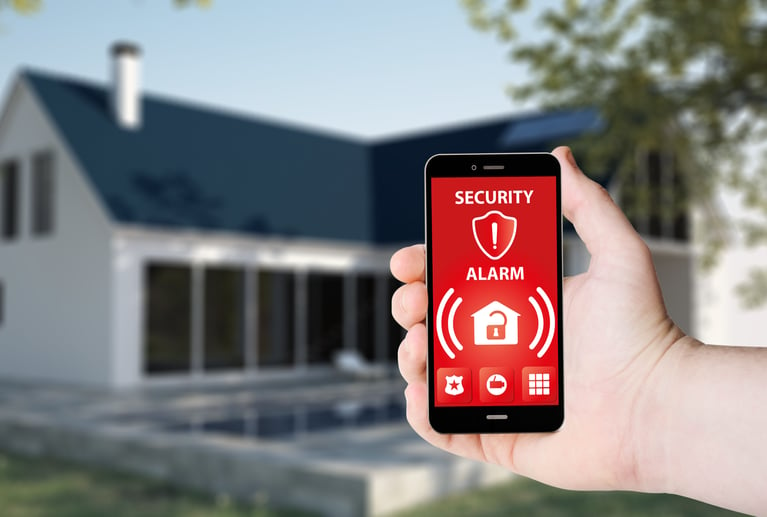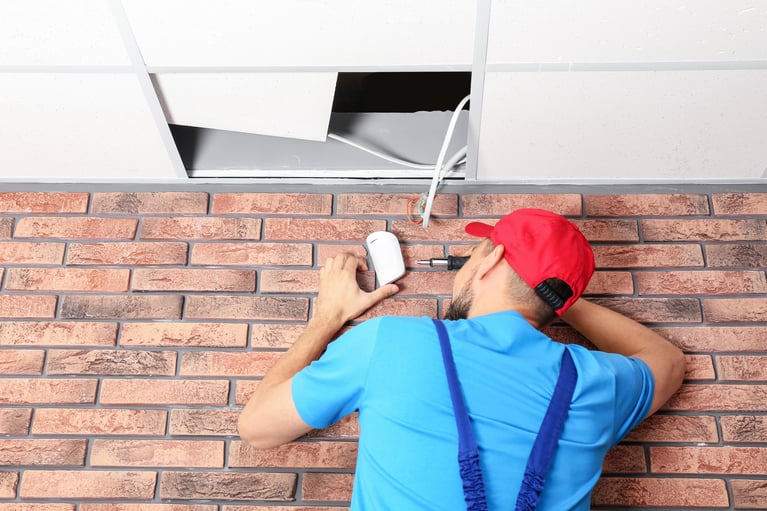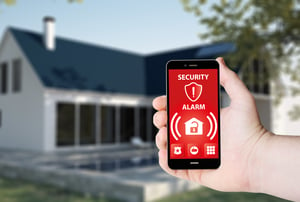 Which is better: wired or wireless alarm systems? The answer is: It depends on your property. Your neighbor might love their wired system, but you might benefit most from a wireless system. Every property is different, so it’s important to weigh the pros and cons of each and identify the one that’s right for your unique security needs. Here’s what you need to know about the differences between wired and wireless alarm systems.
Which is better: wired or wireless alarm systems? The answer is: It depends on your property. Your neighbor might love their wired system, but you might benefit most from a wireless system. Every property is different, so it’s important to weigh the pros and cons of each and identify the one that’s right for your unique security needs. Here’s what you need to know about the differences between wired and wireless alarm systems.
Wired Alarm Systems
As the name suggests, wired alarm systems are hardwired into your building and communicate through attached wires. Every sensor is physically connected to the control panel, and in monitored systems, the control panel typically communicates with the outside monitoring service via landline.
Pros of a Wired Alarm System
Wired alarm systems are generally considered to be slightly more reliable than wireless systems. Because every part of the system is physically connected, there’s almost no chance of interference.
Wired alarm systems are also hardwired into your home’s power supply, which means you’ll never have to worry about changing batteries.
Wireless alarm systems are also limited by range. If the sensors are too far away from the control panel, their radio frequencies might not be able to reach. In a wired alarm system, range isn’t an issue. It doesn’t matter if sensors are a metre or a kilometre away; if they’re connected to the control panel, they can communicate.
Cons of a Wired Alarm System
Because of the need to run wires, wired alarm systems are more difficult to install compared to wireless systems. If you have an existing hardwired security system, installation might require a few holes drilled into the walls. If you don’t have any sort of wired security system, you’d have to install brand new wires throughout your property. Wired alarm systems usually require professional installation.
Wired alarm systems also use your property’s landline to communicate with your monitoring service. If your property doesn’t have a landline — like many newer properties — it could pose an issue for traditional wired systems. Alarm systems that use landlines to communicate are also easier to breech. All a criminal has to do is cut the landline and your alarm system won’t be able to alert emergency responders.
Wireless Alarm Systems
Wireless alarm systems communicate using secure radio frequencies, like your cell phone. The control panel also communicates with outside services, like your alarm monitoring service, using a wireless cellular frequency. Wireless alarm systems are like having a private cell network running through your entire building.
Pros of Wireless Alarm Systems
The biggest pro of wireless alarm systems is the ease of installation. Without wires, all you have to do to install the system is place the sensors, mount the control panel, insert the batteries, and you’re good to go. While professional installation is always suggested, many wireless alarm systems can be installed by just about anyone.
While it might be easy for a criminal to snip your landline and disable a wired alarm system, wireless alarm systems require some extra knowhow to disable. You’d need a hacker to disable a wireless network.
Cons of Wireless Alarm Systems
Although they’re generally reliable, wireless alarm systems — like all wireless networks — can be subject to interference. Outside radio frequencies can hinder communication between sensors and the control panel and either disable the system or set off false alarms. Again, these issues are rare, but they can happen.
Distance is another factor that can limit the reliability of a wireless alarm system. In larger properties, the radio frequencies transmitted by the wireless system might not be able to reach the control panel. Most wireless systems have a range of around 150 metres. If your property is larger than 400 square metres, a wireless system might not be the right fit.
Wireless alarm systems also require a bit more maintenance than wired alarm systems. Since the system isn’t connected to your building’s power supply, wireless control panels and sensors are powered by batteries. Although these batteries will typically last for several years, they need to be replaced occasionally, which adds to the cost of maintenance and takes a little more effort on your part.
Choosing an Alarm System with Four Walls Security
It’s impossible to say which system is objectively the “best”. It ultimately comes down to your property and your goals. If you have a large property and are looking for a permanent, low maintenance alarm, perhaps a wired system is right for you. If you’d rather flexibility and easy installation, a wireless system might be the right choice.
If you need help deciding which system is right for your unique needs, contact the experts at Four Walls Security. We can help walk you through the process of choosing the perfect system, installing it in your property, making sure it’s working properly, and monitoring your new alarm system with professional alarm monitoring services. Contact us with any questions or for a free, no obligation quote today.


